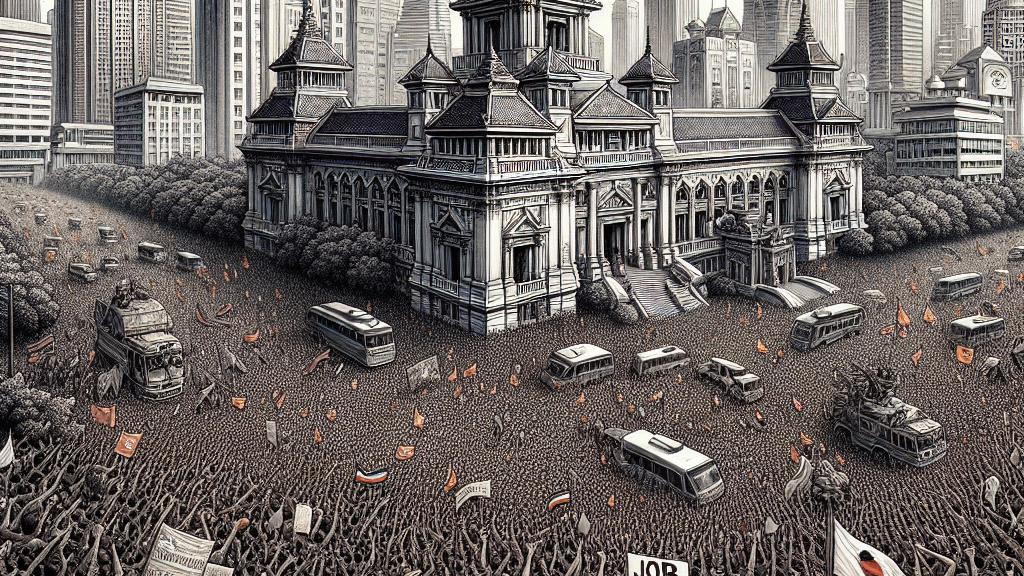Bangladesh on Fire: A Dhaka Dispatch from the Frontlines!
Overview
- Sheikh Hasina resigns amid widespread protests against government policies.
- Violent clashes in Dhaka lead to significant casualties and unrest.
- Student-led movements reveal a deep desire for systemic change in Bangladesh.

The Political Crisis Unfolds
In an extraordinary episode of political unrest, Bangladesh witnessed the resignation of Prime Minister Sheikh Hasina on August 5, 2024. This upheaval followed weeks of escalating protests centered in the capital, Dhaka, where hundreds of thousands of citizens took to the streets demanding her departure. What began as a reaction to a contentious job quota system, which was perceived as unjust by the youth, exploded into a nationwide cry for democratic reform after brutal crackdowns by security forces. This uproar resulted in a staggering death toll, and images of protesters storming government buildings underscored the unprecedented scale of dissent against Hasina’s administration.
From Student Protests to Nationwide Uprising
Initially sparked by discontent over a job quota system that many viewed as favoring veterans’ families, the protests quickly expanded to encompass broader issues such as economic hardship, corruption, and lack of opportunities for young graduates. As tensions boiled over, the government attempted to quell the unrest with force, including curfews, internet blockades, and actual deployment of live ammunition against protesters. The violent response only further inflamed public sentiment, leading to a rallying cry for justice. Videos flooded social media, showcasing the bravery and determination of the youth as they faced armed forces, igniting solidarity and unity across various demographics within Bangladesh.
Looking Ahead: The Future of Bangladesh
With the resignation of Prime Minister Hasina, Bangladesh stands at a critical crossroads. The military's promise to facilitate a transition to an interim government raises questions about the future of governance and democratic processes in the country. Protest leaders are making clear demands for a new era of accountability, transparency, and fair representation, emphasizing the need for a system that uplifts all citizens regardless of their background. While there is cautious optimism about potential reforms, the path towards lasting change is fraught with challenges. The ongoing protests represent not only a rejection of the previous regime but also a powerful movement towards a just and equitable Bangladesh, with global observers advocating for a peaceful and constructive dialogue that honors the voices of the people.

Loading...